Description of the Flavor and Taste of Yunnan Katim Coffee Bean introduction to the characteristics and producing area ranking of Yunnan small Grain Coffee
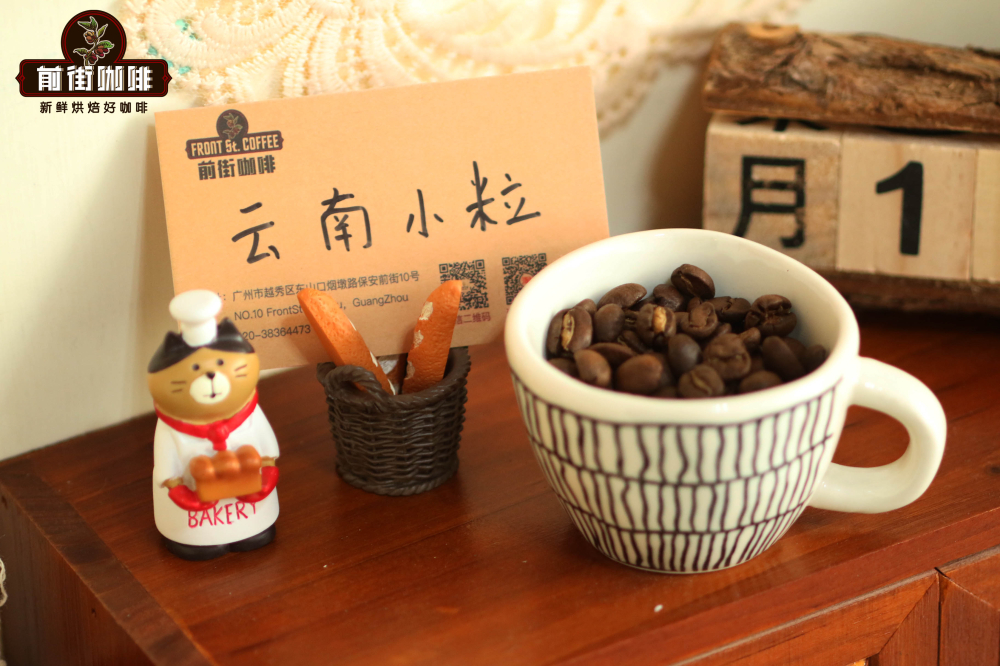
When it comes to Yunnan coffee, there are usually two reactions, one is to frown to show that you don't like it, and the other is to try it with curiosity. Among the related topics of coffee in Yunnan, the word "small grain" appears most frequently, so what is small grain coffee? Which breed does it belong to?
Today, the varieties of small grains in Yunnan are mostly Katim.
Coffee is a kind of crop. From a biological point of view, there is no classification of "small grain coffee". The so-called "small grain" refers to Arabica varieties with smaller mature fruits, in contrast to medium-grain robusta coffee beans in Hainan.
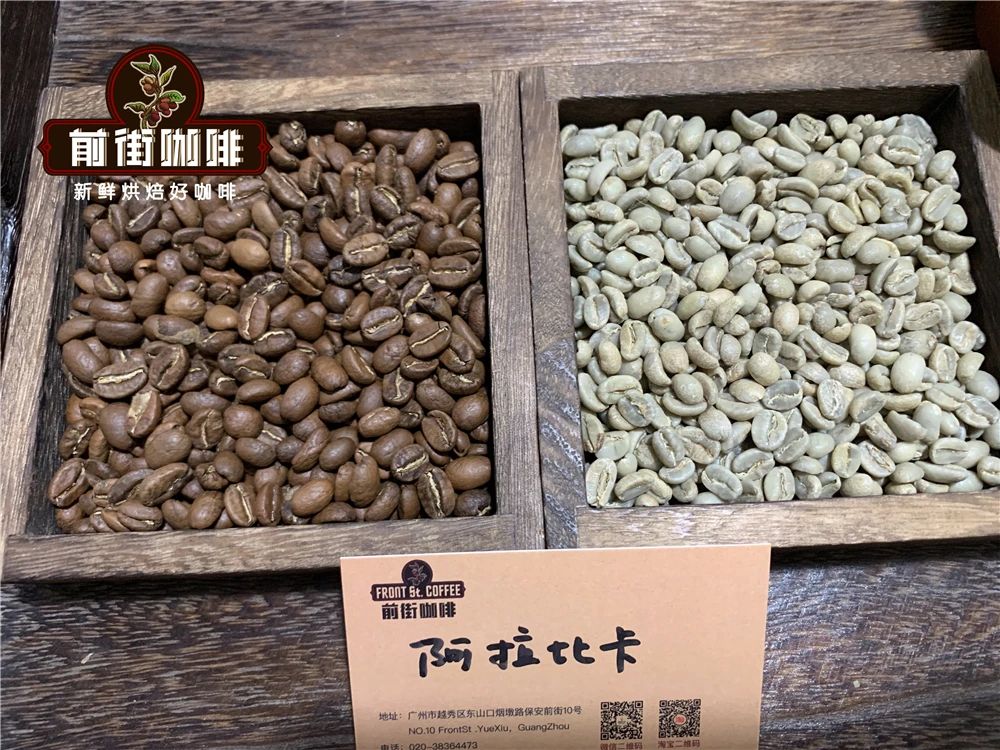
Today, more than 90% of Yunnan coffee is grown in Katim varieties. Historically, Yunnan has grown two ancient varieties of Arabica: iron pickup and bourbon, which local farmers call "old varieties" in Yunnan. Later, because of weak disease resistance and low yield, it was not able to make a profit at all, so it was gradually replaced by growers with the more high-yielding Katim. So the "small grain coffee" we are talking about now refers to Yunnan Katim coffee beans.
Is Katim Arabica or Robusta?
Katim CIFC7963 is a hybrid obtained by the Portuguese Coffee Rust Research Center (CIFC) for coffee rust. In appearance, this variety has the characteristics of compact tree shape, short growth, many branches, short fruit nodes, exuberant growth, strong vitality, and the greatest feature is the amazing ability of rust resistance and high yield. Katim's fruit is small and belongs to the Arabica species classification, but genetically it is a hybrid of 75% Arabica and 25% Robusta.
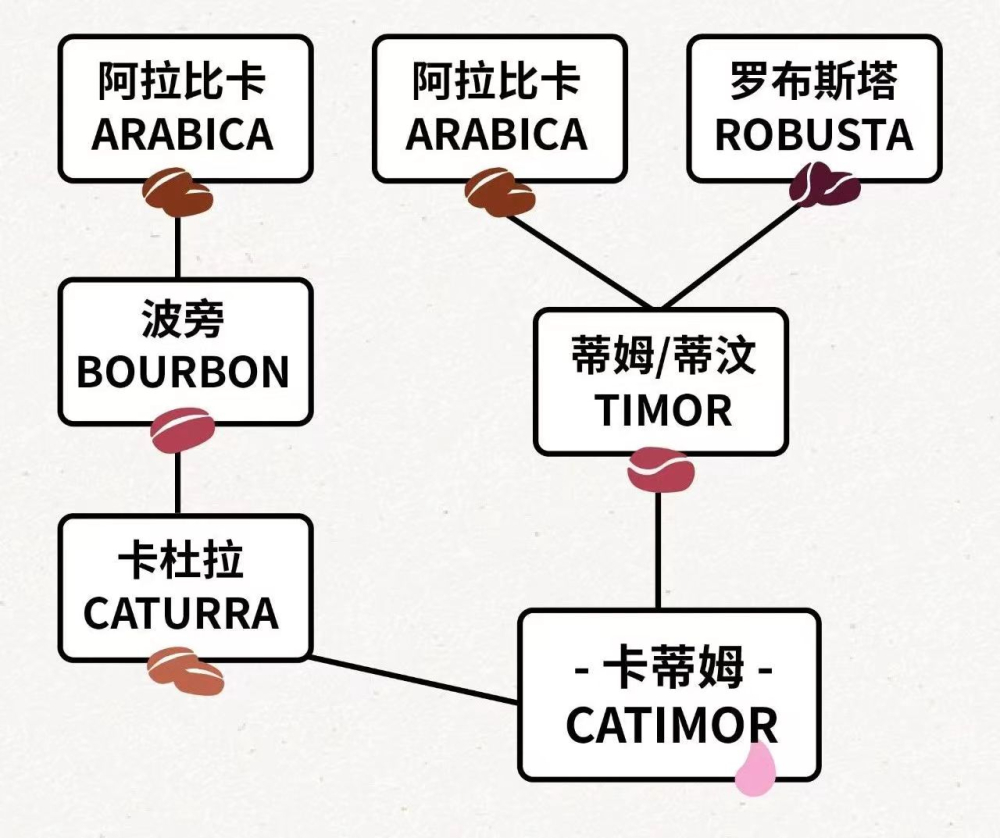
Robusta's caffeine content is 2.7% Mur4%, twice that of Arabica. Caffeine, as a natural pesticide for plants, can be protected from most insects, so it is easier to grow and cheaper, coupled with higher levels of amino acids and chlorogenic acid, with a mellow, lower bitterness, and astringency and more irritating mildew if not handled properly. Therefore, it is often used as a raw material for instant coffee.
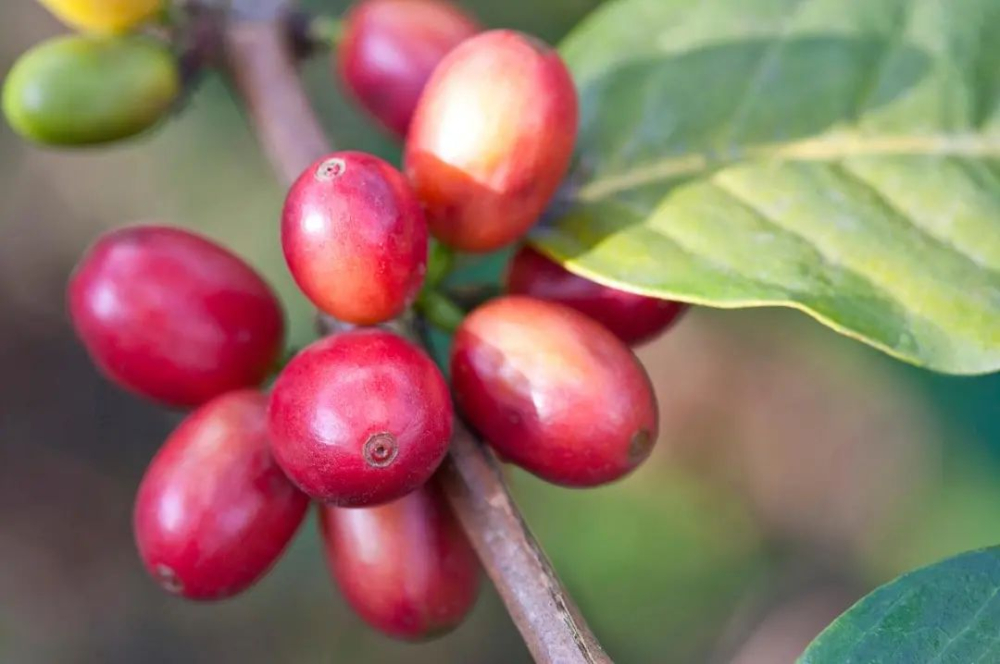
On the other hand, the "picky" Arabica species have weak disease resistance and relatively low yield per plant, and a significant temperature difference between day and night is formed in the high altitude environment, which delays the ripening period of coffee fruit and enables coffee cherries to absorb more nutrients and form a richer aroma. The microclimate of each coffee producing area provides a variety of growth conditions for Arabica, forming a unique flavor and taste.
Katim inherits the characteristics of Robusta and Arabica at the same time, so it has strong disease resistance and high yield. Coffee beans are tasted after roasting and have the acidity and sweetness of fruit. However, the Robusta pedigree also brings taste defects, the flavor is dominated by nuts and brown sugar, lack of rich and rising high-end flavor, such as citrus, flower, tropical fruit and so on. Coupled with the rough handling of raw beans in the past, Yunnan coffee is often described as "the end of the devil", and it is also difficult to compete with pure Arabica such as Kaddura in the competition. In addition, Katim's rust resistance will gradually lose after 20 to 30 years. If the coffee industry in Yunnan wants to improve its overall quality and maintain its long-term development, it must gradually change its varieties. In recent years, there have been many popular varieties on the market, such as iron pickup, bourbon, and Rosa.
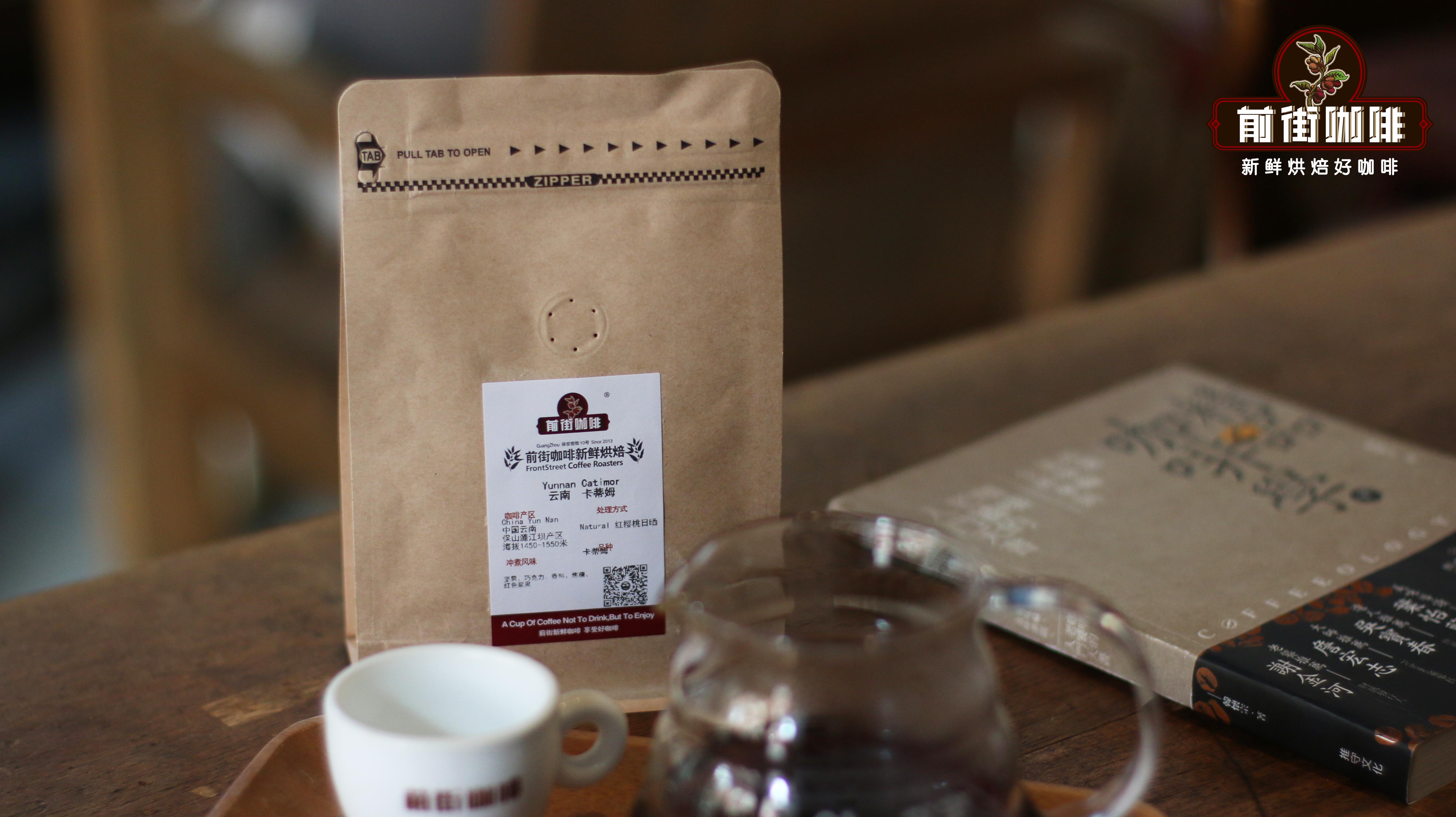
What is the basic flavor tonality of Katim in Yunnan?
Qianjie believes that Yunnan coffee is a product grown by our country, and coffee people should also understand the "taste of Yunnan", so Qianjie added Yunnan Katim coffee to the series of daily rations beans and chose to wash it.
Some merchants use novel flavor enhancement methods to cover up the defective taste of Yunnan bean itself, and add a lot of flavor to it and raise the price. Qianjie feels that this does not really retain the taste of Yunnan coffee, but also misleads consumers. After tasting Yunnan coffee beans with special treatment, some friends feel that the aroma is particularly prominent, so they think that this is the mainstream processing method of Yunnan coffee. In fact, most Yunnan coffee farmers are in difficult conditions and do not have high-priced processing equipment, so the vast majority of Yunnan coffee beans can only be treated naturally, that is, washing and solarization.
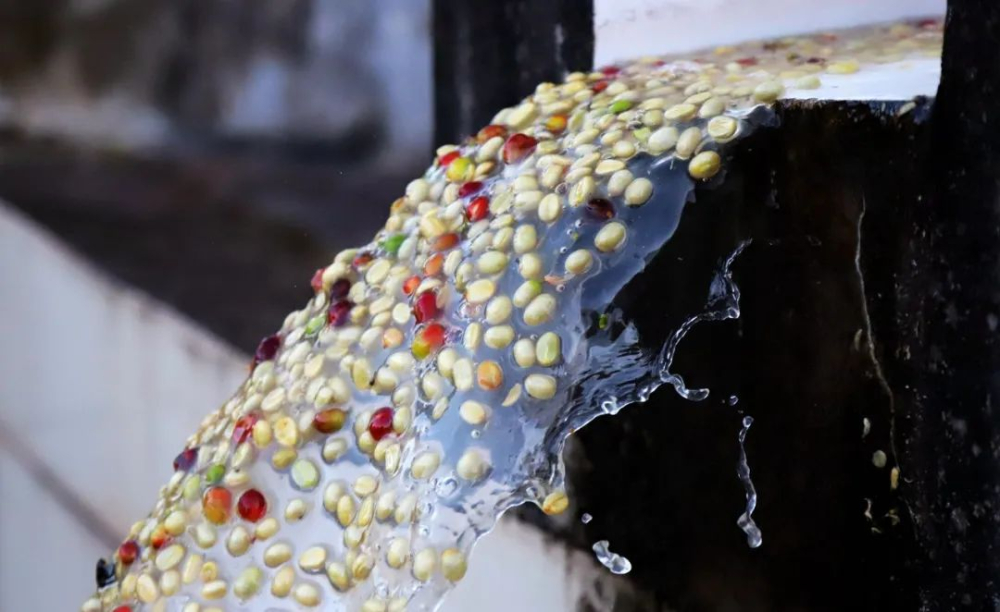
The steps of washing: remove the peel and pulp of the picked coffee fruit by practical machine, put the peeled coffee beans into the fermentation tank for fermentation, decompose the pectin layer by fermentation, wash the decomposed pectin repeatedly with clean water, and finally dry the coffee beans for 1 week and 2 weeks. Washed Yunnan coffee not only reduces the defect rate, the quality of the coffee produced is more stable, but also makes the coffee flavor more clean.
Qianjie believes that the coffee flavor produced in Yunnan style belongs to the neutral and balanced tonality, that is, both sweet and sour. Therefore, Yunnan coffee in Qianjie is moderately roasted, highlighting the roasted aromas of chocolate and nuts while retaining part of the acid. Qianjie drink Yunnan small grain grain beans from the cup test, showing the aroma of nuts, herbs, brown sugar, sweet melons and fruits, and the sour quality of plums, with a balanced taste.
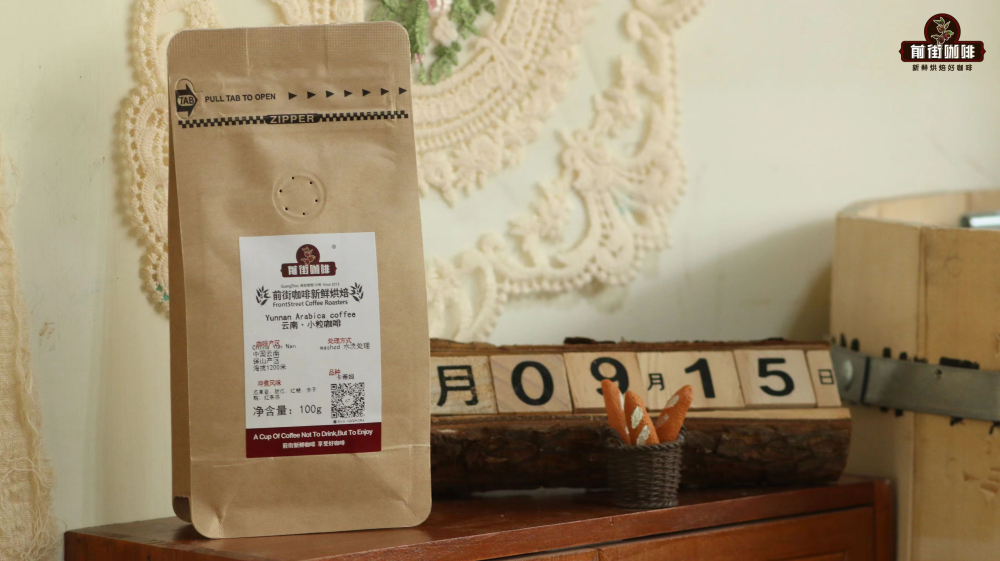
Suggestions on the cooking of Yunnan small granules
Street for brewing different coffee beans will use the corresponding parameters, the more roasted coffee beans, such as Mantenin coffee, Brazilian coffee, the front street will use a temperature of 87-88 degrees Celsius and medium grinding degree, while the lighter-roasted coffee beans, such as Esseyejia Coffee and Panamanian Rosa Coffee, Qianjie will use a high temperature of 91-93 degrees Celsius and medium grinding degree to stimulate the aroma of high-altitude hard beans. Back to Yunnan small grains of coffee in Qianjie today, Qianjie uses medium water temperature and grinding to highlight the neutralization balance of Yunnan coffee.
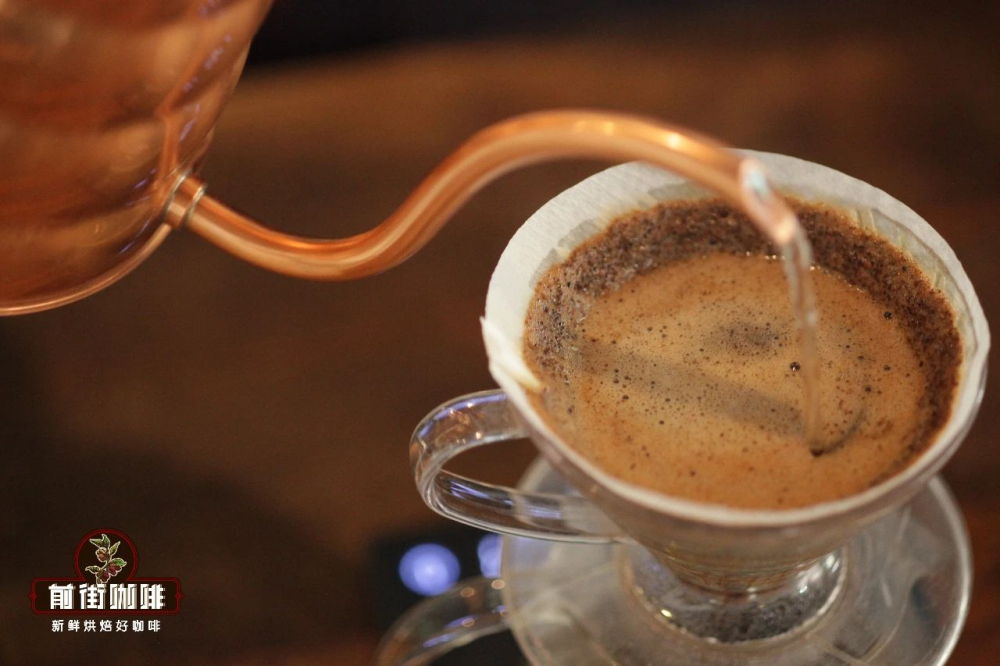
Hand punch parameters of front street:
Filter cup: hario v60
Powder content: 15g
Water temperature: 90 degrees Celsius
Degree of grinding: pass rate of No. 20 screen 75%
Gouache ratio: 1:15
Three-stage water injection: wet the powder bed with twice as much water as coffee powder to form a drum and steam for 30s, then fill the small water from the inside to the outer circle to 125g, wait for the powder bed to drop to half of the filter cup, and continue to inject the same fine water into the third section to 225g, until all the coffee liquid has been filtered and remove the filter cup for about 2 minutes.
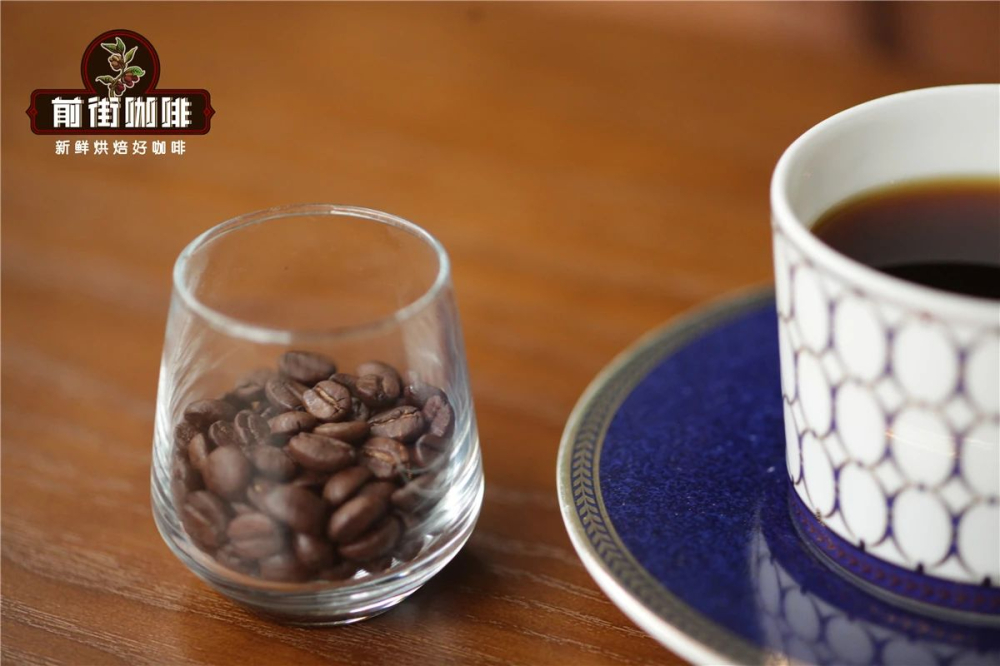
Qianjie Yunnan small grain grain bean coffee flavor: smell very nutty, entrance has herbs, chocolate, caramel, finish with a touch of fruit acid, the overall taste is balanced, with a good cleanliness.
Professional coffee knowledge exchange more coffee bean information please follow the coffee workshop (Wechat official account cafe_style)
For more boutique coffee beans, please add private Qianjie coffee on Wechat. WeChat account: qjcoffeex
Important Notice :
前街咖啡 FrontStreet Coffee has moved to new addredd:
FrontStreet Coffee Address: 315,Donghua East Road,GuangZhou
Tel:020 38364473
- Prev

Description of the flavor and taste of Katim coffee
Follow the caf é (official Wechat account vdailycom) found that after the beautiful cafe opened a small shop of its own, it was 18.5kg of raw beans, of different sizes, a lot of broken beans, adzuki beans, bad beans, after the size of the sun, there were still a lot of defective beans, so we hand-picked them on the spot, and when finally picked out, there were still 9 kilograms of qualified ones, and most of the morning had already passed, of course.
- Next

Columbia Huilan Coffee Taste
Following Cafe Review (official Wechat account vdailycom) found that Beautiful Cafe opened a small shop of its own producing area: Huilan Variety: Caturra treatment: washing flavor: full of sour, caramel, sweet nuts, chocolate, with red wine flavor, admirable fruit flavor. Palate: full viscosity, caramel sweetness, supple and pleasant fruit acid. Baking degree: medium and deep baking
Related
- Detailed explanation of Jadeite planting Land in Panamanian Jadeite Manor introduction to the grading system of Jadeite competitive bidding, Red bid, Green bid and Rose Summer
- Story of Coffee planting in Brenka region of Costa Rica Stonehenge Manor anaerobic heavy honey treatment of flavor mouth
- What's on the barrel of Blue Mountain Coffee beans?
- Can American coffee also pull flowers? How to use hot American style to pull out a good-looking pattern?
- Can you make a cold extract with coffee beans? What is the right proportion for cold-extracted coffee formula?
- Indonesian PWN Gold Mandrine Coffee Origin Features Flavor How to Chong? Mandolin coffee is American.
- A brief introduction to the flavor characteristics of Brazilian yellow bourbon coffee beans
- What is the effect of different water quality on the flavor of cold-extracted coffee? What kind of water is best for brewing coffee?
- Why do you think of Rose Summer whenever you mention Panamanian coffee?
- Introduction to the characteristics of authentic blue mountain coffee bean producing areas? What is the CIB Coffee Authority in Jamaica?

